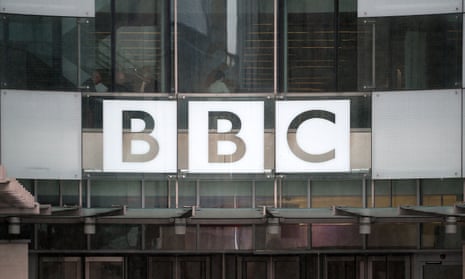Russia’s media regulator has said it will carry out checks to determine whether the BBC is in compliance with Russian law, in a retaliatory move after the UK regulator censured the Russian broadcaster RT.
The Kremlin said the investigation into the BBC World News channel and BBC websites was a direct response to a finding on Thursday by the British media regulator, Ofcom, that RT had broken impartiality rules in some of its news and current affairs programmes.
The Kremlin’s spokesman, Dmitry Peskov, said the BBC was being targeted for its “biased” and “unfair” coverage of events in Russia and Syria, and said the review could “certainly” be seen as a response to the Ofcom decision.
Russia has regularly threatened retaliatory actions against British media if the operations of its state news agencies such as RT are impeded in the UK.
The foreign ministry spokeswoman, Maria Zakharova, said Britain’s actions against RT left Russia with no option but to respond in kind. “Russia had given warning. Repeatedly,” she wrote on Facebook.
Margarita Simonyan, the head of RT, tweeted: “One must assume they’ll search for an alternative point of view on the BBC. With a microscope.”
The BBC said: “As everywhere else in the world, the BBC works in Russia in full compliance with the country’s laws and regulations to deliver independent news and information to its audiences.”
BBC News Russian has grown by dozens of correspondents in the past two years as a new influx of funding has allowed the broadcaster to hire some of Russia’s leading independent reporters.
Many of them worked for newspapers and websites that have come under official pressure for investigating the government, state corporations and other powerful interests.
BBC Russian this year published blockbuster reports on the Russian private military company Wagner’s expansion into new conflicts in Africa, the identities of the Salisbury poisoners, a substantial hack of Facebook in which direct messages were put up for sale, and a review of the largest income declaration by a Russian official in history (more than £33m).
RT last week published online messages it said were sent by a BBC Russian reporter to a local freelance journalist in France looking for a Russian “angle” to the “gilets jaunes” protests, such as Russian businesses benefiting from the protests or far-right Russians traveling to stir up violence. BBC Russian did not publish an article on the topic. The story has received ample coverage on Russian state television.
The news agency has also clashed with Simonyan repeatedly, including for its coverage of the state-funded romcom “Crimean Bridge. Made with Love!” (written by Simonyan and directed by her husband), and for a still-unpublished article on Simonyan’s sister, who has become a prominent PR specialist and promoted a Crimean bridge contractor and the 2018 World Cup.
Ofcom’s 190-page report on RT concluded that the channel had breached British broadcasting rules – which require “due impartiality” when discussing contentious political issues – on seven occasions.
In its defence, RT argued its British viewers of the channel knew it was “avowedly Russian”, adding: “Viewers turn to RT with the expectation that they will receive a Russian viewpoint.”
Although the British media regulator has the power to remove RT’s licence to broadcast in the UK, a fine is a more likely sanction given the relative severity of the offence.
However, the culture secretary, Jeremy Wright, later issued a statement in substantially stronger language than Ofcom, appearing to urge a tough punishment.
“Russia Today’s mask as an impartial news provider is clearly slipping,” he said. “We know some foreign regimes will use any vehicle at their disposal to sow discord in the west.
“It is vital that as a society we remain vigilant to the spread of harmful disinformation, and Ofcom has strong powers to tackle it where it occurs in broadcast news.”
Yevgenia Albats, the editor-in-chief of the Russian independent weekly The New Times, said the Russian response was predictable and investigations by US and UK media regulators provided a pretext for Russia to crack down on independent media outlets.
“It has nothing to do with the quality of journalism,” said Albats. “It has to do with the fact that the people who run the contemporary Russia are vindictive people who are going to go after Russian independent outlets any time the British or Americans go after Russia Today.”










